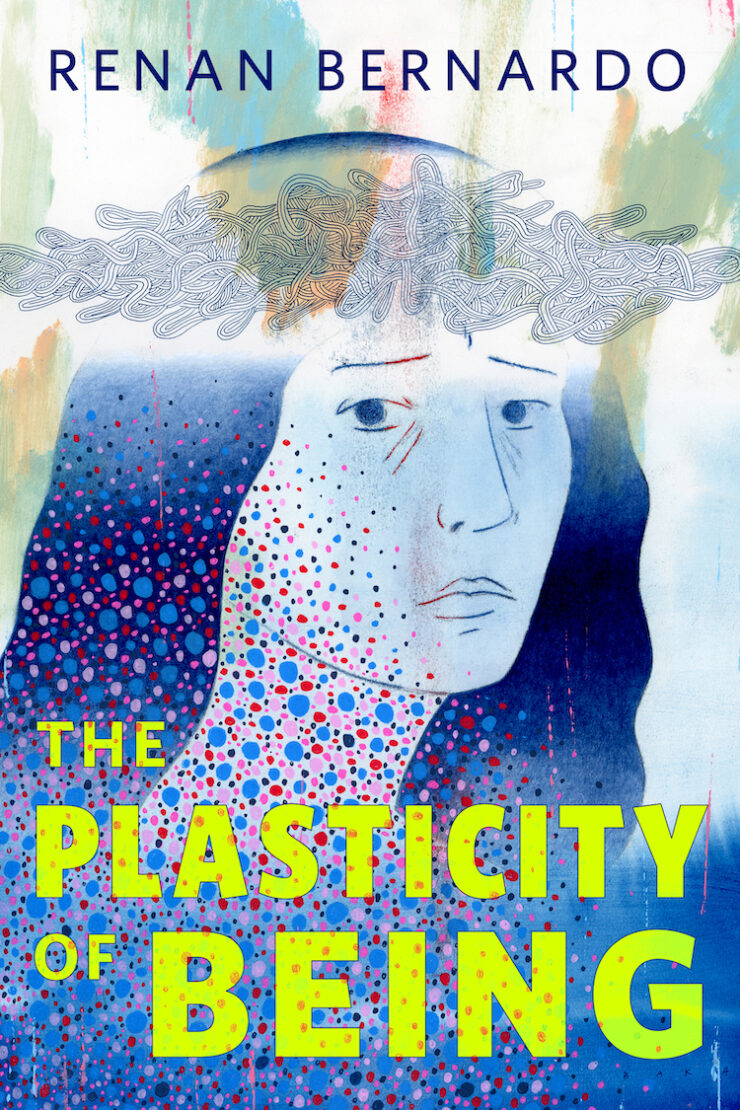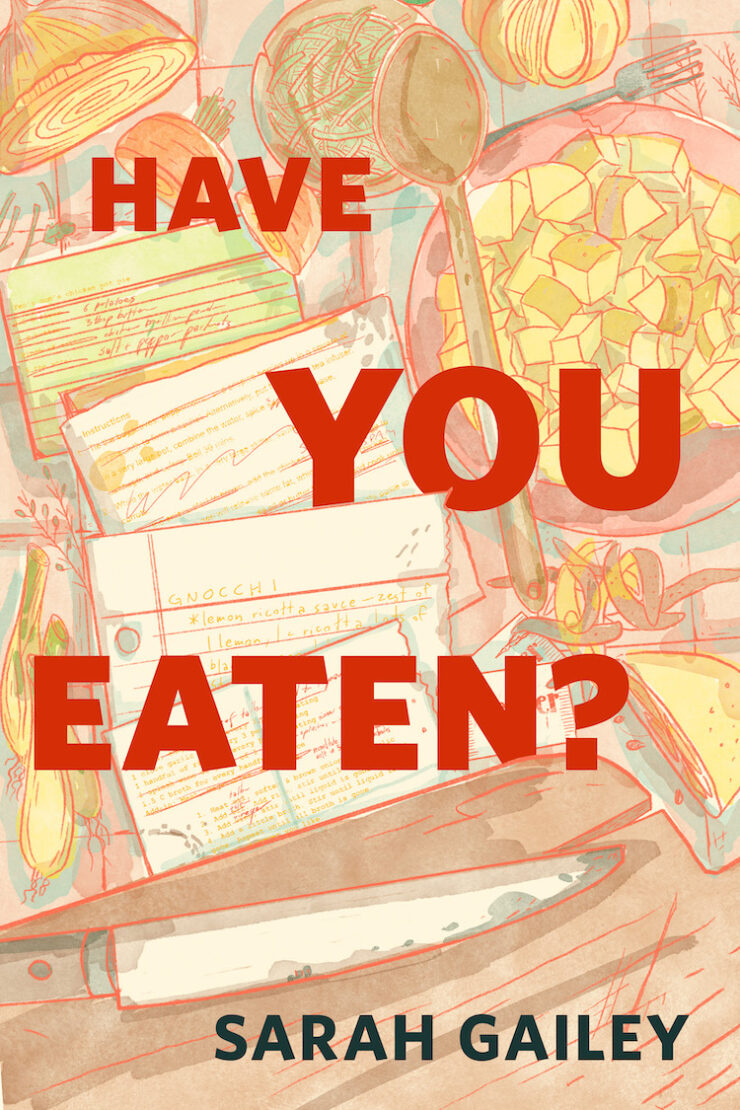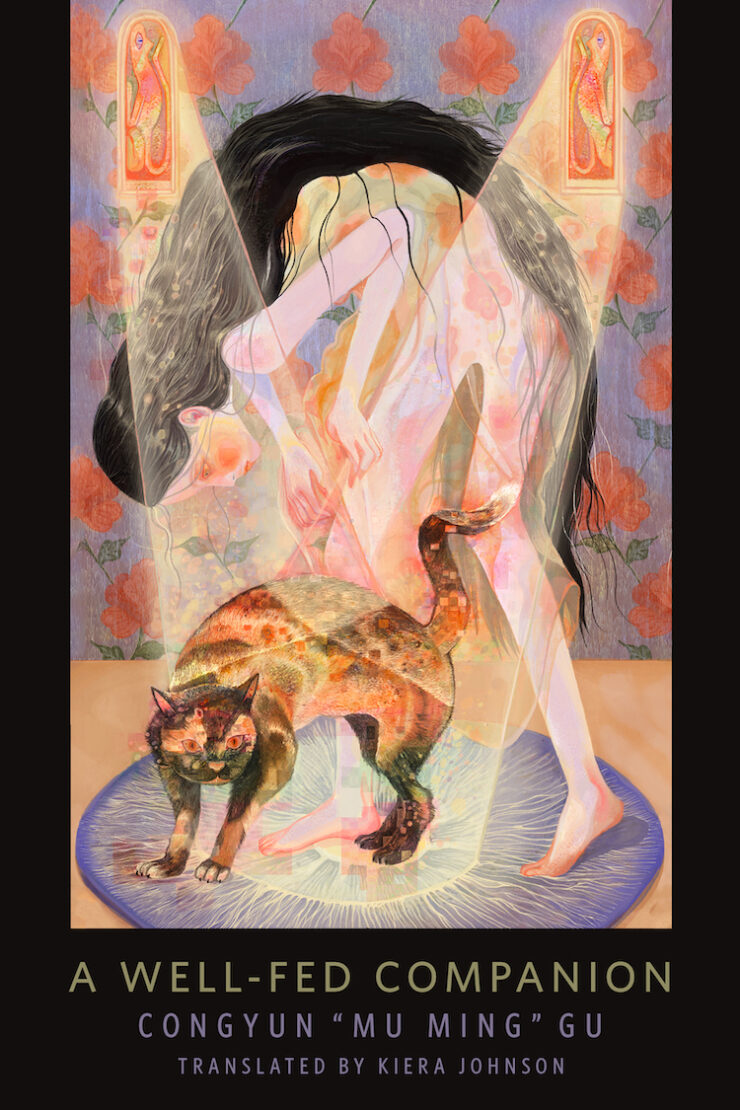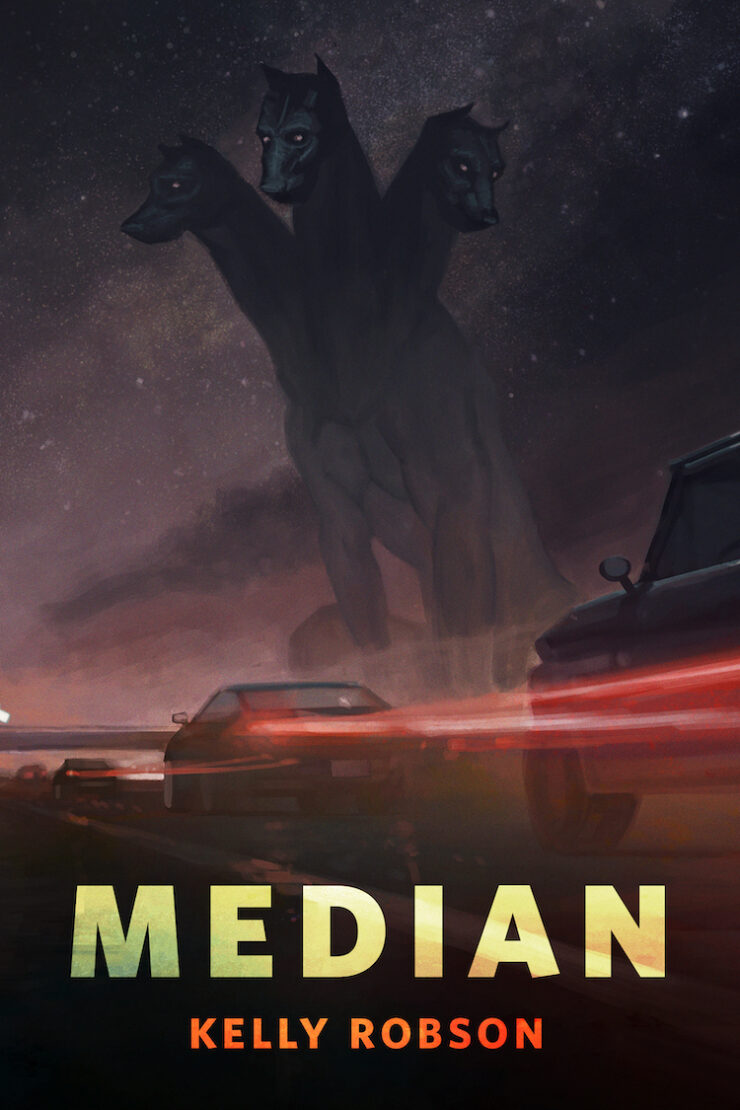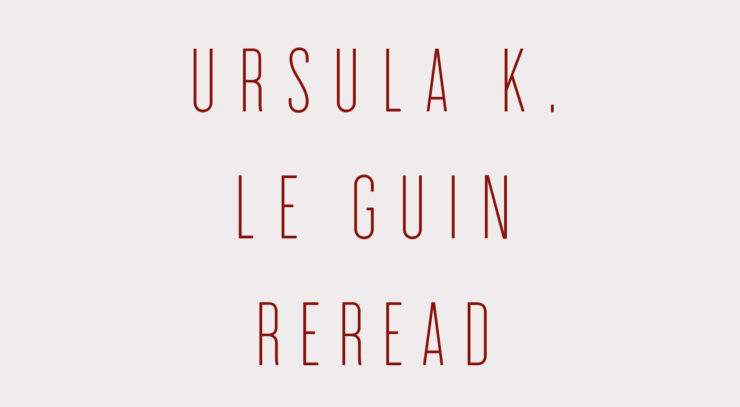A biweekly series, The Ursula K. Le Guin Reread explores anew the transformative writing, exciting worlds, and radical stories that changed countless lives. This week we’ll be covering the novella The Word for World Is Forest, first published in Harlan Ellison, ed., Again, Dangerous Visions (1972). My edition is from Tor (2010) and this installment of the reread covers the entire novel(la).
The period between 1968 and 1974 were magnificently productive for Le Guin, yielding the novels and stories that solidified her reputation in the SFF world and which have inspired writers, critics, and scholars alike for the past half-century. Between her most famous novels, she dropped the literary firebomb of a novella, The Word for World Is Forest. Originally tucked away in Again, Dangerous Visions (1972), the second volume of Harlan Ellison’s story collections that helped shape the American New Wave, the novella was recognized with a Hugo for Best Novella, nominated for the Locus and Nebula in the same category, and upon publication in a solo volume in 1976 was a finalist for the National Book Award.
Next to The Dispossessed and The Left Hand of Darkness, Le Guin’s novella Word for World is among her most beloved by critics. It’s often presented as a key example of the growing ecological commitment of SFF authors in the 1970s as the environmentalist movement got into full swing. The novella is a blunt condemnation of colonialism that emphasizes how a regime of resource extraction wreaks havoc on indigenous cultures, not only physically and mentally, but culturally as well, causing a once-peaceful culture to adopt violence as a means of resistance.
The novella takes place on the planet Athshe, known to the Terran colonists as New Tahiti. The planet is a paradise, a lush, wooded planet with four continents, a climate running from temperate to pleasantly tropical. The indigenous inhabitants are small, the size of a Terran child, and covered in short green fur. Like all humans in the Hainish Cycle, they are an example of how the local environment of a planet alters the physiology and culture of Homo sapiens “seeded” throughout the galaxy by the ancient Hains, rendering a radically “different” form of human that puts to the test what “human” means to many of the Terran colonists. Believing the Athsheans, whom they call “creechies,” are little more than semi-intelligent apes with the ability to perform hard labor, the Terrans use New Tahiti as a lumber yard, force the Athsheans into “voluntary” service, and assault their women for sexual pleasure. The plot of this concise story revolves around the Athsheans’ resistance and its ramifications for their culture, and highlights the role of white supremacy in furthering colonial violence. A simple story that, like most things Le Guin wrote, packs a powerful emotional and critical punch.
Buy the Book
The Word for World is Forest
Commenting on her experience writing the novella, Le Guin noted, “Writing is usually hard work for me, and enjoyable; this story was easy to write, and disagreeable.” The story is disagreeable indeed, a blunt examination of colonialism’s violence, from the bureaucracy of folks who intend to treat the Athsheans appropriately but nonetheless perpetuate their occupation’s devastation of the world (including the friendly anthropologist Raj Lyubov), to the direct and interpersonal consequences of individual colonial agents. This latter category includes the sadistic Don Davidson, rapist and trigger-happy murderer whose actions against a “creechie” named Selver bring about the Athshean revolution. That the story came easily to Le Guin is a sad but true reflection of how common such violences are, how heavily they weighed on the mind of a political activist who spoke out against the American War in Vietnam in the 1970s—and how surely they still do after Afghanistan, Iraq, Libya, and so on.
Despite the 48 intervening years, the novella still comes easily and disagreeably. Davidson in particularly is frighteningly familiar, a white supremacist assured of his moral certitude, convinced that he has both the right and duty to murder creechies after they rise up from forced servitude and destroy a logging camp, killing some 200 Terrans. Following an interdict from Earth—a member of the new League of Worlds—that the Terran colonists of New Tahiti leave the Athsheans alone pending the League’s audit of the colony’s impact on the indigenous humans (an intervention pushed by Terran anthropologist or “hilfer” Raj Lyubov and two visiting non-Terran humans, a Cetian and a Hain), Davidson refuses to give up his crusade against the creechies.
Like H. Beam Piper’s Little Fuzzy before and James Cameron’s Avatar after, Word for World pits the Bad Guy against the indigenous population as a representative of the worst aspects of human (Terran) life: a god-hero complex driven by greed, racism, and self-assured superiority over all life. The Davidson figure (Kellog in Piper, Quaritch in Cameron’s film) is juxtaposed by Lyubov, an anthropologist who advocates strongly for Athshe’s independence, representing a vaguely liberal they’re-human-too response to Terran expansionism. Word for World departs from the eco-capitalist fantasies of similar texts, from the idea that colonial expansion and resource extraction are OK but within reason, by presenting things from the indigenous perspective and not treating the “within reason” perspective as the final word on colonialism.
In other words, Le Guin provides a strong case for the Athsheans’ swift and violent retaliation against the Terrans, including the killing of 500 women (newly brought to New Tahiti to “entertain” the two-thousand-plus workforce of Terran men) so the Terrans cannot “breed.” Readers of course are aware that the colony has a brand new ansible, has just learned of the League’s new interdict against conflict with the locals, and might very well lose their colonial charter. This is the “within reason” response: Earth learn that the colonists went “too far,” so an attempt must be made to reign them in; as Colonel Dongh, administrator of the colony tells Selver, temporary leader of the Athsheans upon the Terrans’ defeat, the release of “voluntary” laborers should have been enough to appease the Athsheans. This is the rhetoric of bullies and empires when their former victims are still angry: But we stopped murdering/bombing/enslaving you, so why’re you mad?
For Le Guin and Selver, this isn’t the final word. Empires make their own rules for engagement that overwhelmingly support their agendas and discredit those who would respond negatively. But the Athsheans aren’t an empire; they aren’t organized into colonial administrations and intergalactic bureaucracies, they are disturbed by the presence of strangers (even among their own kind) because they live in small, tightly knit communities; they are a by and large peaceful world-culture that resolves disagreement through rap battles. Only in the wake of Terran violence have they learned to kill and been motivated to do so at enterprise scale, to save themselves, to protect the forest, to drive back those who promise things that aren’t understood within their cultural frame of reference. And even when they retaliate, they do so only to the extent that is necessary.
By the novella’s end, the Athsheans have “won” insofar as they’ve regained their planet and, after 3 years of waiting, a human ship has retrieved the last of the colonists; moreover, the League has declared “Planet 41” off limits for non-indigenous peoples, thanks to Hainish and Cetian intervention and the pleas of (now-dead) Lyubov. But as Selver makes clear, they haven’t really “won”; they have been wholly changed as a people, forcibly so. Where before murder and killing were the hyper-rare result of psychosis, now it is known and practicable; the rules of conflict have changed. And so has the planet, an entire continent (a fourth of the planet!) reduced to a deforested dust bowl.
All of this is Le Guin’s way of saying, perhaps, that colonialism cannot be undone—its effects linger in the heart, in the culture, in the soil and forest, in the stories a people have to tell and the songs they sing. Lyubov puts it this way: colonization brought Death out of the dream-time and into the world-time, unleashing new possibilities for violence, retaliation, and meaning-making. What is real cannot become unreal; what walks the world cannot return to dreaming. So, too, once bombs and firejelly (i.e. napalm) have been dropped, the forest and its inhabitants are never the same, and neither is the relationship between the bombed and the bomber.
Speaking through the idea of Australian Aboriginal dreamtime, an Indigenous epistemology woven into the Athsheans’ culture and physiology (they dream, rather than sleep, a form of active meditation that allows for manipulation of the subconscious), Le Guin responds to the American War in Vietnam and to the violence of Euro-American colonialism more generally. Her incorporation of Indigenous epistemologies into her worldbuilding emphasizes the long history of colonialism’s devastations, tying the genocide of Indigenous peoples in the Americas, Australia, Oceania, and Africa in the “era of Discovery” to the ongoing devastation of America’s contemporary wars in Asia, ostensibly to stop communism’s spread.
In Word for World, the metaphors for the Cold War heat up, just as the killing fields of Korea, Vietnam, Afghanistan, and other “third world” nations set fire to the seething imperial conflict between the US and the USSR. Moreover, Le Guin syncs her critique of colonialism (her most ardent, blunt, and damning to date by 1972) with the growing environmentalist movement, making it impossible to dissociate the wars waged in the name of ideology from the destruction caused to the environment. For the Athsheans, the world is the forest; they are not separate words in their language (athshe, n. “world; forest”); to destroy the forest is to destroy the world is to destroy who the people living on that world/in the forest are. Le Guin powerfully links culture, environment, and the violence done to both by colonialism.
With The Word for World Is Forest, Le Guin gives us the literary gift of a protest novel(la) that makes inextricable the violences of genocide and ecocide. She argues the need for anti-colonial action and also recognizes that such action (like the violence that made it necessary) will forever change who and what we are. She asks us to dream possibilities into being, like Selver, once-god of the Athsheans, but to know that our dreams have consequences. We must take up the sword and shield. And we must be accountable for doing so, for the change we will bring.
Join me next week on Wednesday, August 12 as we read the first half of Le Guin’s first short-story collection The Wind’s Twelve Quarters, from “Semley’s Necklace” to “The Good Trip,” pp. 1-128 in the 1975 Harper & Row hardcover edition. Be seeing you!
Sean Guynes is a critic, writer, and editor. For politics, publishing, and SFF content, follow him on Twitter @saguynes.


